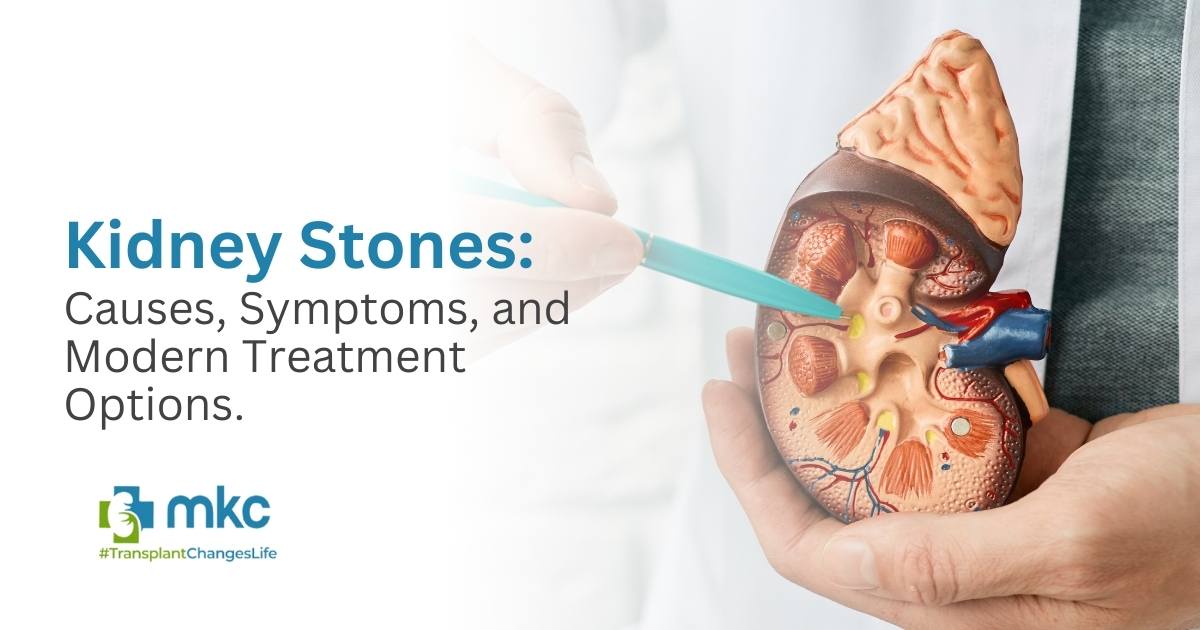Kidney stones are one of the most common and painful urological conditions affecting millions worldwide. Understanding the causes, recognizing early symptoms, and seeking timely treatment can prevent complications and ensure effective recovery.
What Are Kidney Stones?
Kidney stones, also known as renal calculi, are hard deposits of minerals and salts that form inside your kidneys. They vary in size, from tiny grains to stones that can obstruct the urinary tract, causing severe pain and urinary complications.
Causes of Kidney Stones
Several factors contribute to the formation of kidney stones, including:
Dehydration – Insufficient water intake concentrates urine, increasing the risk of stone formation.
Dietary Factors – High intake of oxalate-rich foods (like spinach, nuts, and chocolate), excessive salt, or animal protein can trigger stone development.
Obesity – Being overweight alters urine composition, promoting stone formation.
Medical Conditions – Conditions such as gout, urinary tract infections, and certain metabolic disorders increase susceptibility.
Genetics – Family history can increase the likelihood of developing kidney stones.
Common Symptoms of Kidney Stones
Kidney stones can be asymptomatic in the early stages, but larger stones can cause severe discomfort. Symptoms include:
Severe pain in the back, side, or lower abdomen (often called renal colic)
Painful urination or burning sensation
Blood in the urine (hematuria)
Frequent urge to urinate or incomplete emptying of the bladder
Nausea and vomiting
Cloudy or foul-smelling urine
Modern Treatment Options
Thanks to advancements in urology, kidney stones can now be treated effectively with minimal discomfort.
1. Extracorporeal Shock Wave Lithotripsy (ESWL)
ESWL uses focused shock waves to break kidney stones into smaller fragments that can be passed naturally through urine. It is non-invasive and suitable for stones less than 2 cm in size.
2. Ureteroscopy and Laser Stone Removal
A thin tube called a ureteroscope is inserted into the urinary tract to locate and remove stones using laser technology. This method is ideal for stones in the ureter or larger kidney stones.
3. Percutaneous Nephrolithotomy (PCNL)
For very large or complex stones, PCNL involves creating a small incision in the back to remove the stones directly from the kidney. This minimally invasive surgery reduces recovery time compared to traditional open surgery.
4. Preventive Measures
Drinking plenty of water daily
Maintaining a balanced diet low in salt and oxalate
Regular monitoring of urine and kidney function
Managing underlying health conditions
Contact Urology Care Clinic today to schedule a consultation and take the first step toward a stone-free life.
📞 Phone: +91 782 789 0989
🏥 Location: ED 3A, Madhuban Chowk, Pitampura, New Delhi, 110034


